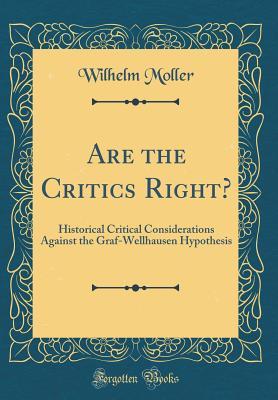Read Are the Critics Right?: Historical Critical Considerations Against the Graf-Wellhausen Hypothesis (Classic Reprint) - Wilhelm Moller | PDF
Related searches:
These Historic Moments Defined the 1960s
Are the Critics Right?: Historical Critical Considerations Against the Graf-Wellhausen Hypothesis (Classic Reprint)
The Historical Background
Definition and Examples of the Historical Present Tense
Amazon.com: Customer reviews: Are the Critics Right
The Pope's View of the Historical-Critical Method of Biblical
It's Still Not the End of History - The Atlantic
The Critics of Marxism Mises Institute
Approaching the Bible: Literal vs Historical-Critical RELS2001
The Critical Period - U-S-History.com
Critics of the New Deal - APUSHistory
The Critic Magazine Britain’s new monthly magazine for
The Purpose and Usage of Literary Criticism - A Research
Critical Interpretations of the New Deal Boundless US History
1619 Project conservative backlash: A history of the history
The phrase the wrong side of history, around for more than
The articles of confederation left the young country ill-equipped to deal with a series of problems. The period from the adoption of the articles to the adoption of the federal constitution (1781-89) has been labeled the “critical period” of american history.
External criticism is a process by which historians determine whether a source is authentic by checking the validity of the source. Internal criticism looks at the reliability of an authenticated source after it has been subjected to extern.
Britain’s new monthly magazine for politics, ideas, art, literature and more on the critic magazine.
Historical events represent turning points the progress of civilization. Learn about some of the most famous historical events in these articles. Advertisement from the age of enlightenment to the christmas truce, learn about some of histor.
It was a time of frequent social and political unrest, culminating in a call for civil rights for the african american community.
As such though, the historical critical method focuses primarily, almost exclusively, on the human origins of a text. The scriptures are a document of faith, more specifically of the believing community of the church. They are inspired texts, with god the holy spirit as their ultimate author.
Historical development of literary criticism nearly all literary criticism was document from the 20 th century onward. That said, the questions first raised by aristotle and plato are still considered valid, and every single critic who has ever attempted to justify the social value of literature has done so by first having to come to terms with.
In composition, critical analysis is a careful examination and evaluation of a text, image, or other work or performance. In composition, critical analysis is a careful examination and evaluation of a text, image, or other work or performan.
History course against conservative criticism that it was presenting a negatively biased view of american history, the college board.
The “nihilist” critic dmitry pisarev then asserted that “objectivity” in natural science ought to be the model for social and historical analyses. Chernyshevsky, wrote a novel informed by similar notions entitled what is to be done? (1863).
History a brief history of the history wars conservative uproar over the new york times’ 1619 project is just the most recent clash in a decades-old battle over how we should understand american.
Roosevelt attracted as much criticism from the left as he did from the right. When norman thomas ran as the presidential candidate of the socialist party of america in the 1932 election, his platform reminded people more of the later new deal agenda than the new deal plan announced at the time by presidential candidate roosevelt.
Historical figures changed the world, for better or for worse. Learn about famous historical figures in these articles from howstuffworks. Advertisement from musketeers to nazis, archimedes to harriet tubman, these famous historical figures.
Historical criticism: this approach “seeks to understand a literary work by investigating the social, cultural, and intellectual context that produced it—a context that necessarily includes the artist’s biography and milieu. ” a key goal for historical critics is to understand the effect of a literary work upon its original readers.
Since “liberal” ideas have always triumphed, siedentop and fawcett argue, they are manifestly right, and while things might not be working out so well now, the logic of history shows that they will.

Post Your Comments: